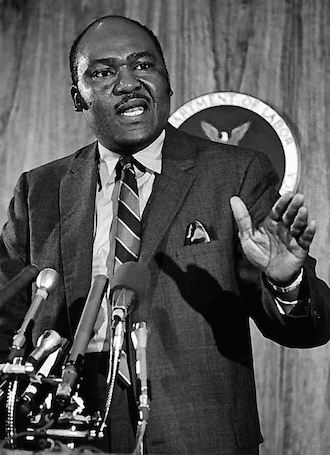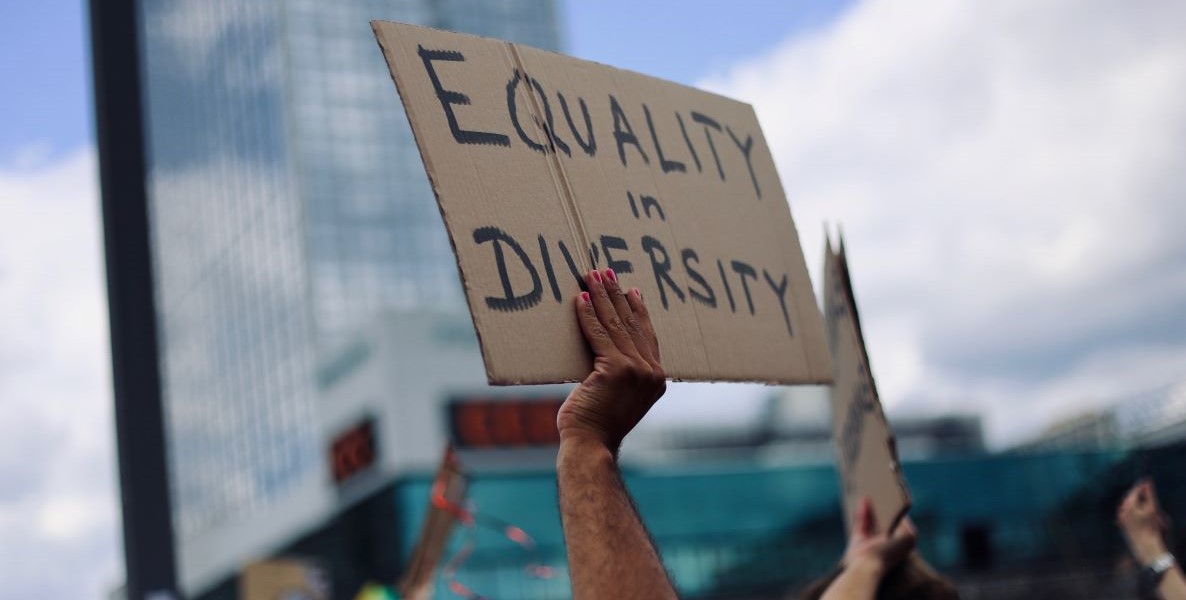Let’s see. The Supreme Court strikes down affirmative action in college admissions at the same time that cultural warriors on the right (looking at you, Vivek Ramaswamy!) are catastrophizing over workplace “wokeness” — the valuing of DEI and stakeholder capitalism in business.
Coincidence? I think not. What do you think is on the horizon? That’s right, while talk of reparations heats up, and while C-suite execs get more comfortable at least mouthing the idea of businesses serving people, planet and profit, get ready for a wave of legal challenges to how corporations make hiring and promotion decisions.
While few employers use the kind of race-based affirmative action universities engage in, we’re already seeing an upsurge in workplace reverse discrimination claims, like the $25.6 million award to the White regional manager of Starbucks who, a jury found, was fired and essentially scapegoated because of her race in the aftermath of Philly’s Starbucks-ing While Black incident in 2018, when the cops were called on two Black men who had the audacity to sit in the store at 18th and Spruce without ordering anything.
The point is that the Republican party under Donald Trump literally gave up even the pretense of having a policy platform in 2020; it became an all-culture war-all-the-time vessel. And workplace affirmative action is likely the next cultural battleground.
Fletcher used to say that the enemy of merit is discrimination.
The problem is that all of those decrying so-called “Woke Capital” ignore some fundamental inconvenient truths. Like: Economically, affirmative action has been good for everyone. Don’t take my word for it. Affirmative action effectively got its start right here in Philly through something called The Philadelphia Plan in 1967; its architects were Republicans who argued that it would be good not only for Blacks, but for all businesses, that more robust opportunity and fuller employment would turbocharge the American economy.
The (Republican) father of Affirmative Action
Who made this argument? None other than Richard Nixon, who shrewdly saw political benefit in it. Arthur Fletcher, a Black Republican, became known as “the father of affirmative action” — he was its chief architect, and it remains a shame that his contribution to civil rights history has gotten lost through the decades.
Fletcher earned a Purple Heart in World War II, serving under General George Patton; played pro football for the Los Angeles Rams and the Baltimore Colts; became a lawyer and earned a Ph.D in education, and served as assistant secretary of wage and labor standards in the Department of Labor under President Nixon. Later, he’d go on to head the United Negro College Fund, where he coined the phrase “A mind is a terrible thing to waste,” and he served on the U.S. Commission on Civil Rights.
But it was while in the Labor Department that Fletcher came to the rescue of The Philadelphia Plan, a groundbreaking federal affirmative action program that sought to integrate Philadelphia’s building trades. (The more things change …) The building trades were rife with discrimination. What few jobs Blacks had access to were of the low-skill, low-pay variety. In the waning days of the Johnson administration, The Philadelphia Plan mandated that, before the awarding of any contracts, contractors had to project in advance the number of non-White workers they’d have on any given jobsite. Federal contracting officers would then take such projections into account — along with all other factors typically considered — before awarding a contract.
“Nixon’s decision to transfer Fletcher from the Labor Department to an innocuous job at the United Nations was a microcosm for the eventual collective decision by Republican leaders to abandon civil rights initiatives altogether.” — David Hamilton Golland
Alas, in 1968, the U.S. Comptroller ruled that The Plan was effectively a quota system and therefore in violation of the 1964 Civil Rights Act. Enter the ever wily Nixon, who saw the issue as a way to divide two core Democratic constituencies: Blacks and organized labor.
In the Nixon administration, Fletcher oversaw the Office of Federal Contract Compliance, giving him the power to revoke federal contracts and bar contractors who practiced discrimination from bidding on future work. On June 27, 1969, Fletcher implemented the Revised Philadelphia Plan, which still required federal contractors to meet minority hiring goals that they’d lay out — that was a key point — for skilled, high-paying jobs in a vastly segregated sector of the economy.
Nixon fought for Fletcher’s Plan, and Congress approved it. According to A Terrible Thing to Waste: Arthur Fletcher and the Conundrum of the Black Republican by David Hamilton Golland, The Philadelphia Plan worked where it was implemented; by 1973, most skilled trades were showing 20 percent minority membership.
Alas, it was ultimately a pyrrhic victory. By 1973, opposition to Nixon’s escalating Vietnam War had gotten heated. Aligning with Nixon were White construction workers who were seen on the evening news beating up anti-war hippies. Nixon had found his Archie Bunker-like “love it or leave it” constituency — and, for fear of alienating it, he promptly abandoned enforcing The Philadelphia Plan.

Nixon’s foray into affirmative action may have been the product of a brilliantly devious political mind. But Fletcher? He was a true believer. According to Golland’s book, Fletcher used to say that the enemy of merit is discrimination. The goal was to establish a level playing field — and then for the government to get out of the way.
“President Nixon and his closest advisors jettisoned Fletcher and his ideas in favor of a Northern version of the Southern Strategy,” Golland writes. “Nixon’s decision to transfer Fletcher from the Labor Department to an innocuous job at the United Nations was a microcosm for the eventual collective decision by Republican leaders to abandon civil rights initiatives altogether.”
Not only would Fletcher not recognize his party today, he wouldn’t understand its knee-jerk opposition to affirmative action. Fletcher’s Republican party was the party of business, and he maintained until his death in 2005 that affirmative action was good for business, though his outlook often made him an ideological nomad in politics. “My conservative friends know the cost of everything but the value of nothing,” Golland quotes him as saying. “My liberal friends know the privilege of freedom, but they think its cost is free, that it’s yours for the taking. Not so.”
Good for business?
So, nearly two decades after his death at 80 years old, was Fletcher a prophet? Has affirmative action been good for business?
Let’s look at the facts. A 2018 McKinsey study found that companies in the top quartile for gender diversity were 21 percent more likely to post above-average profits than companies in the fourth quartile. The same year, an employee recruiting firm survey of workers found that enhanced culture and greater innovation were correlated to diversity and inclusion. Similarly, Boston Consulting Group polled employees at more than 1,700 companies across the globe and found that those with above-average diversity at the management level posted revenue that was 19 percentage points higher than those led by lesser-diverse teams.
“My conservative friends know the cost of everything but the value of nothing. My liberal friends know the privilege of freedom, but they think its cost is free, that it’s yours for the taking. Not so.” — David Hamilton Golland quoting Arthur Fletcher
“Diverse and inclusive workplaces are shown to have higher employee retention rates, a more positive company culture, and higher earnings,” concludes Ahmed Younies, of HR Unlimited, Inc., an affirmative action consulting firm. “Instead of looking at federal affirmative action regulations as a burden, companies should see them as an opportunity.”
He might not have had the data back then, but these are the points Arthur Fletcher, and many other Republicans, were making 50-some-odd years ago. Diversity and inclusion, Fletcher intuited back then, was not charity or simply acts of high moralism. No, it was enlightened self-interest. The fact that 82 major corporations — including Google, Verizon, Apple, Mastercard, GE, GM and Meta — filed amicus briefs in support of race-conscious collegiate admissions in the recent Supreme Court case ought to prove three things: One, those Masters of the Universe, valuing their fiduciary responsibilities above all else, know just how much affirmative action means to their respective bottom lines. This is more about smart business than social engineering. Two: the powers-that-be of such industry leaders know that the Supreme Court’s decision in Students for Fair Admissions (SFFA) v. Harvard and SFFA v. University of North Carolina was not just about college admissions; next in line, they know, is the workplace itself. And, finally, three: How ahead of his time was Arthur Fletcher?
![]() MORE ON AFFIRMATIVE ACTION FROM THE CITIZEN
MORE ON AFFIRMATIVE ACTION FROM THE CITIZEN



